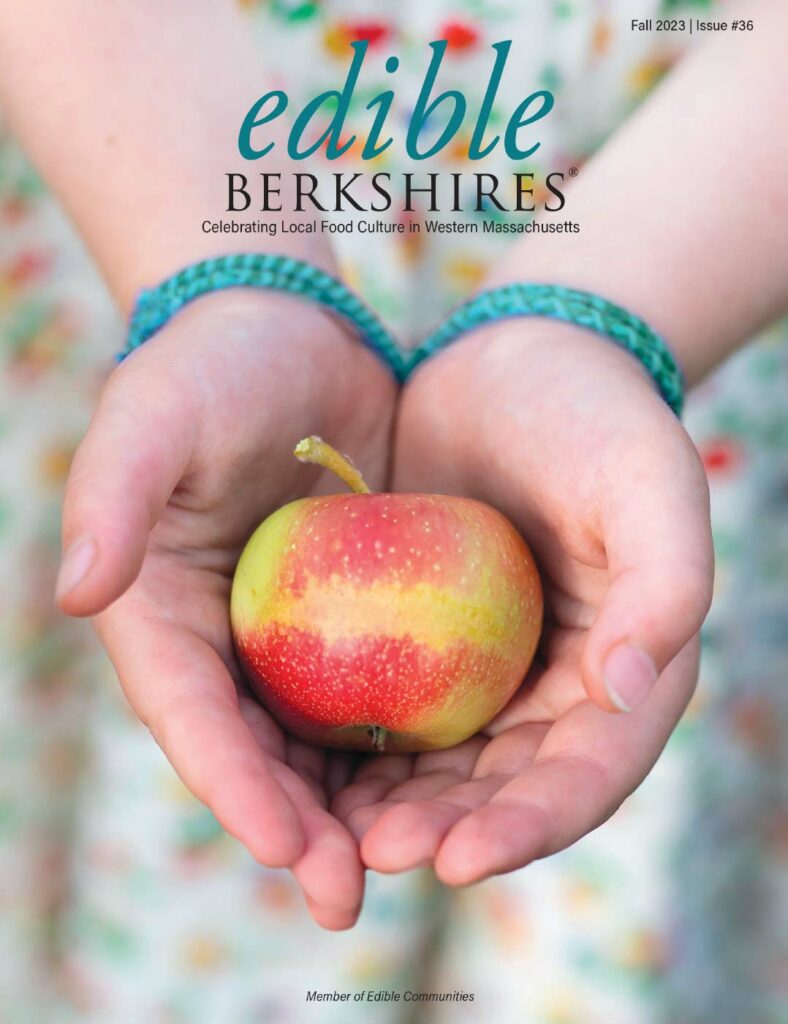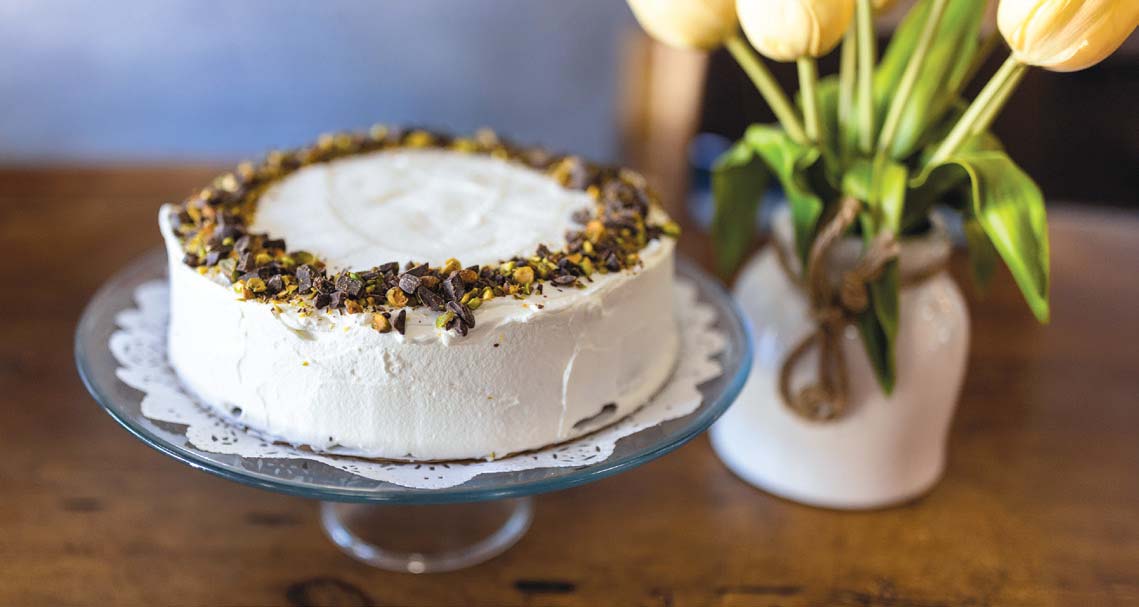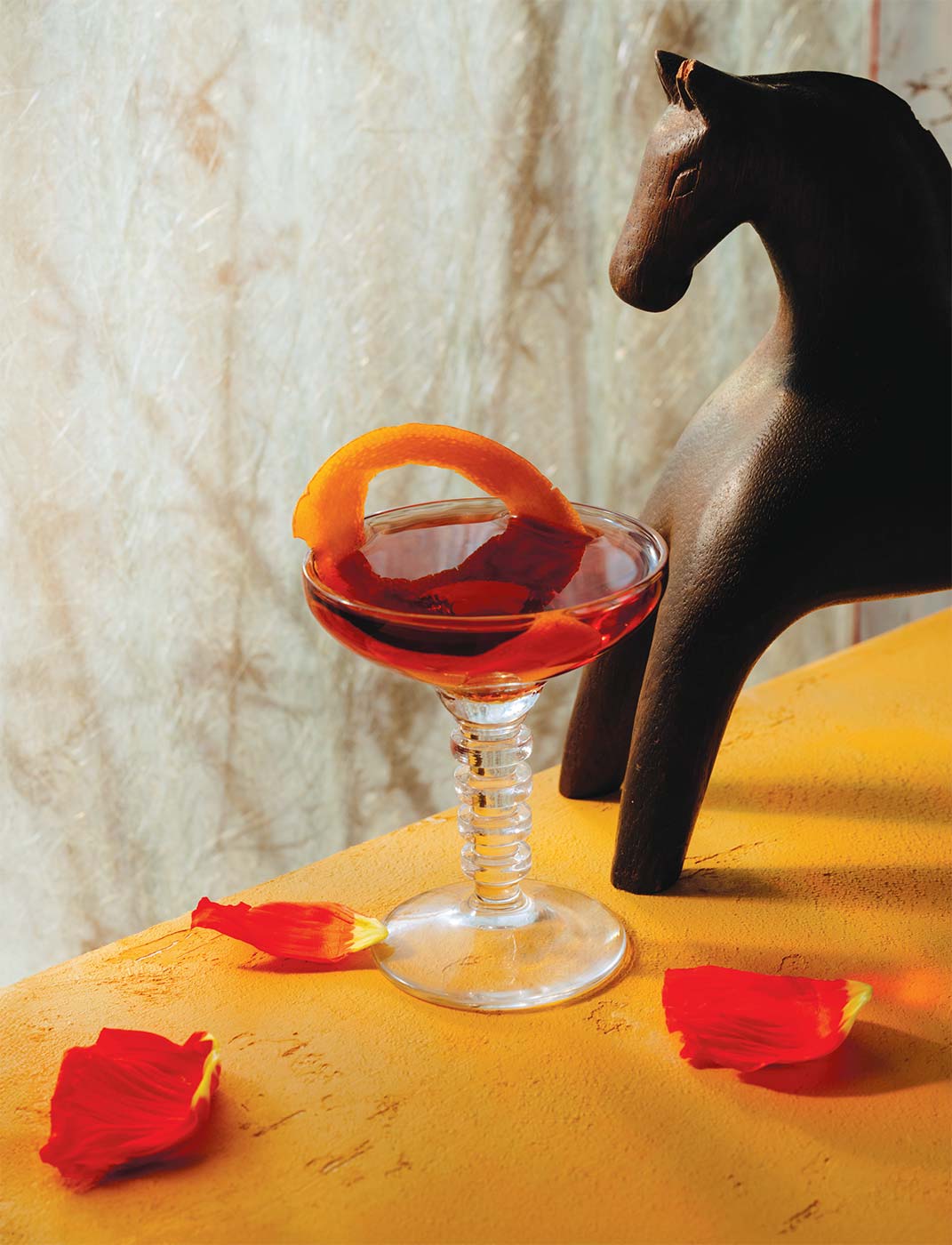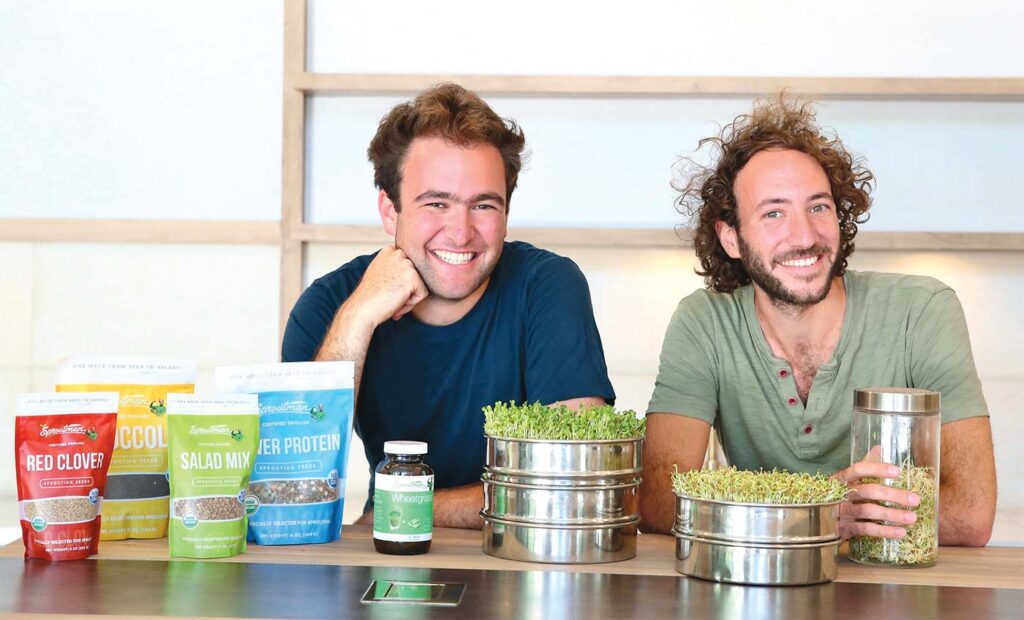
Mea culpa! I always—and now I realize too complacently— prided myself on healthy eating and staying on top of nutrition trends. But somewhere on that food journey, I missed incorporating sprouting seeds and eating sprouts, an omission rectified after my recent conversations with brothers Ari and Noah Meyerowitz, owners of Sproutman of Great Barrington. They specialize in selling organic sprouting seeds and growing kits, and in educating the public about the power of sprouts.
Sprouts, like broccoli or alfalfa, are baby vegetables at their youngest— the infants of the plant kingdom. At this stage, nutrients stored in the seed are fully unlocked, making sprouts up to 40 times more nutritious than full-grown vegetables. These are not to be confused, the Meyerowitzes explain, with microgreens, those delicate sprigs that garnish salads, which could be considered vegetable toddlers, harvested soon after sprouting.
Sprouts are also super easy to grow: Seeds are soaked in water, drained, and then rinsed twice a day for about a week. “It takes 30 seconds twice a day, and you have a jar full of vegetables year round no matter where you’re living in the world,” says Ari. “It’s like having a produce aisle in your home.”
While microgreens may be trendier, the Meyerowitzes are confident sprouts are catching up, bolstered by the ease with which they’re grown, needing just water compared to the soil and sunlight that microgreens also require. “Sprouts were seen as a hippie food,” Noah says, but at a natural products show two years ago, “people our age walked by our booth on multiple occasions and said, ‘Wow, sprouts are so cool.”’
The brothers walk (and eat!) their talk: As Ari and I spoke, he ate a breakfast of alfalfa, broccoli, mung bean and pea sprouts with sauerkraut and tahini. Noah confesses he’s less of a sprout eater for breakfast, preferring his orange, ginger, and hemp smoothie when we met, but says when he’s not in the office, “I’ll just have a rice cake with avocado, miso, and sprouts.”
“It takes 30 seconds twice a day, and you have a jar full of vegetables year round no matter where you’re living in the world. It’s like having a produce aisle in your home.” —Ari Meyerowitz
THE SPROUTMAN’S SONS STEP IN
The brothers perpetuate the evangelism of their late father, Steve “The Sproutman” Meyerowitz, who pioneered sprouting and founded the business in the ’70s. Back then, the business relied heavily on publishing and distributing Meyerowitz’s 11 books on the subject, and selling a wide range of health food products. He tragically died in 2015 in a car accident, and that’s when Ari, now 34, and Noah, 25, took over, calling themselves “The Sprout Brothers.”
Six weeks after their dad passed away, Ari recalls, “We’re standing there on stage giving our dad’s talk.” Noah remembers, as a 16-year-old high school sophomore, trying to run a business. “I had an Apple Watch and I would go to the bathroom and respond to emails,” he recalls.
“When our dad died,” says Ari, “we were overwhelmed by his following who came out in droves.” It was a “no-brainer we would keep the business alive,” but competing with a growing Amazon was a struggle.
Eight years after they started running Sproutman together, the company was “doing the good that it was supposed to do,” but, Ari concedes, “the business had become an energy drain.” The brothers were spending more time on supply chain issues, manufacturing headaches, and cash flow stress than on “the parts of the business that light us up, like product development, connecting with customers, and building the future,” says Ari. Their cousin encouraged them “to own your niche.” So, Ari and Noah decided to streamline their e-commerce operation by shrinking the marketplace their father had created of juicers, dehydrators, blenders—“150 things that had nothing to do with sprouts,” Ari says. They decided to focus only on sprouts, selling kits and sprouting seeds and sprouting-related items. “Everyone should have access to produce,” Ari says.
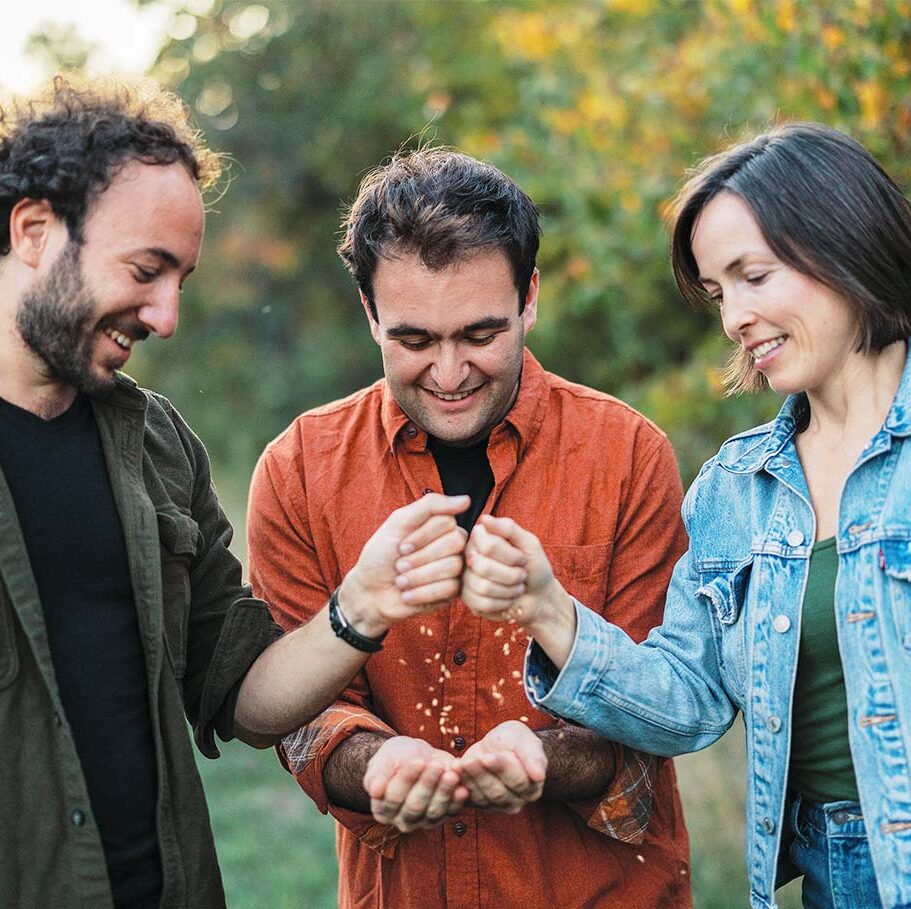
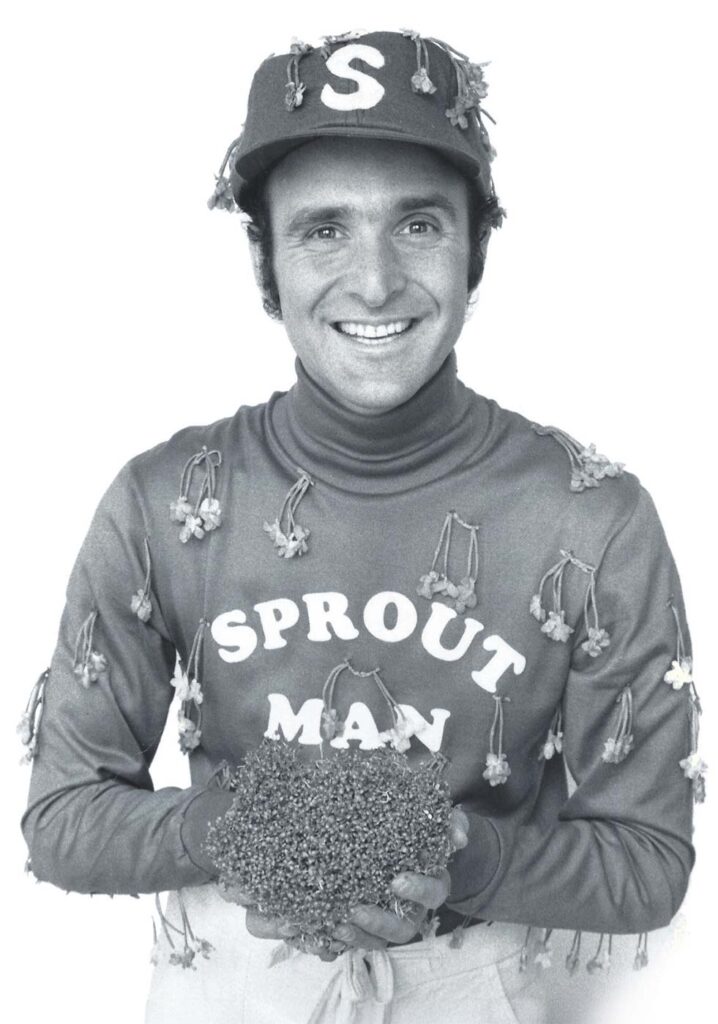
Steve “The Sproutman” Meyerowitz
A U.S.–CANADA PARTNERSHIP
The two revamped their infrastructure and rebuilt their website, just in time for the pandemic. Shoppers were leery to enter supermarkets or encountered depleted produce aisles. But they did discover sprouting. For the brothers, Ari says, it was like “riding a raft in a tsunami,” with their products becoming a primary source of greens for many. Orders overwhelmed them. “We were almost 700 orders behind,” Noah recalls. The brothers rented a truck, drove to Danbury, Connecticut, where their products were then stored (their orders are now fulfilled in Utah), and schlepped it back to their then second-floor Railroad Street office, packing 600 orders in one day.
In 2024, Noah and Ari joined forces with their longtime friend Lisa Mumm of Mumm’s Sprouting Seeds in Saskatchewan, Canada’s largest commercial and retail supplier of organic sprouting seeds, merging the two companies. The year prior, Mumm’s and Sproutman say they delivered a combined 1.4 million pounds of sprouting seeds to consumers and wholesalers. The three own Mumm’s together, with The Sproutman becoming Mumm’s U.S. retail brand, a direct-to-consumer operation with an increasing presence in independent grocers that includes Guido’s in the Berkshires. Noah says they are now “able to source around 120 varieties of quality organic seeds directly from small organic farms.”
At this writing, Noah reports that tariffs have had, “near zero impact, thankfully. That said, we’re not naïve and we’re planning contingencies. We’re strengthening our supply chains, deepening our partnerships with organic farms in both U.S. and Canada, and staying agile. If tariffs hit, we’ll be ready.”
In conjunction with Mumm’s, Sproutman sells both seeds in bulk and smaller sizes to attract retailers. “We have starter kits,” says Noah, “which is everything you need to get started growing sprouts at home,” and other offerings, like superfood sprout products. “Think of seeds as different vegetables. Once you’ve tried salad mix or power protein, you might want to try broccoli or alfalfa or radish, and we’ve got all those.”
‘SPROUTS ARE SAFE’
I asked Ari and Noah to confront the elephant in the room, the oftheard belief that sprouts aren’t safe. Confession: Before speaking to Noah and Ari, I would always say “hold the sprouts” on any menu item that included them. The brothers quickly emphasized that sprouts are safe. “There were safety concerns from the ’90s,” Ari says, when their dad’s generation’s discovery of sprouts “led to everyone starting a business, selling at markets, growing them in their spare bedroom. The practices have improved so dramatically.” Foodborne illness outbreaks from chicken or lettuce, the brothers say, statistically far exceed any from sprouts.
And what would Steve “The Sproutman” Meyerowitz think of the way his sons have continued his legacy? “He’d be blown away, filled with delight, and astounded (I’m sure) at how this has all come together,” says Noah. “We’re delivering the message to more people than ever, in a way he couldn’t have imagined. And as for the future, it’s cliché, but we’re just getting started. We’re making a push this year to expand into more retail stores (we just signed with a boutique national distributor) and are growing our direct-to-consumer presence, working to make fresh food as easy as turning on the tap. Sprouts are the future of food, and we’re here to grow it.”



